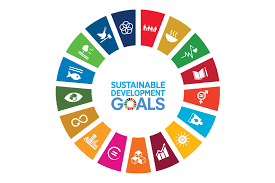Understanding the UN Sustainable Development Goals
The United Nations Sustainable Development Goals (SDGs) are a set of 17 global goals designed to address various social, economic, and environmental challenges facing the world today. Adopted by all UN Member States in 2015 as part of the 2030 Agenda for Sustainable Development, these goals provide a blueprint for a more sustainable and equitable future for all.
The 17 SDGs include:
- No Poverty
- Zero Hunger
- Good Health and Well-being
- Quality Education
- Gender Equality
- Clean Water and Sanitation
- Affordable and Clean Energy
- Decent Work and Economic Growth
- Industry, Innovation, and Infrastructure
- Reduced Inequality
- Sustainable Cities and Communities
- Responsible Consumption and Production
- Climate Action
- Life Below Water
- Life on Land
- Peace, Justice, and Strong Institutions
The SDGs are interconnected and aim to tackle multiple issues simultaneously. By focusing on areas such as poverty eradication, environmental protection, gender equality, and access to education and healthcare, the SDGs seek to create a more just and sustainable world for present and future generations.
6 Essential Tips to Support and Achieve the UN Sustainable Development Goals
- Support initiatives that aim to end poverty in all its forms everywhere.
- Advocate for quality education for all and promote lifelong learning opportunities.
- Empower women and girls by promoting gender equality and ensuring their rights.
- Promote sustainable cities and communities by supporting urban planning and infrastructure development.
- Take action to combat climate change and its impacts by reducing carbon emissions.
- Strengthen global partnerships for the goals, collaborate with others to achieve the SDGs together.
Support initiatives that aim to end poverty in all its forms everywhere.
Supporting initiatives that aim to end poverty in all its forms everywhere is crucial in achieving the UN Sustainable Development Goal of eradicating poverty. By backing programs that provide access to education, healthcare, employment opportunities, and social support systems for marginalized communities, we can create a more equitable society where everyone has the chance to thrive. Addressing the root causes of poverty and promoting sustainable economic growth are essential steps towards building a world where no one is left behind.
Advocate for quality education for all and promote lifelong learning opportunities.
Advocating for quality education for all and promoting lifelong learning opportunities is crucial in achieving the United Nations Sustainable Development Goals. By ensuring that everyone has access to a high-quality education, we can empower individuals to reach their full potential, contribute meaningfully to society, and drive economic growth. Lifelong learning opportunities not only enhance personal development but also foster innovation and adaptability in an ever-changing world. Education is a fundamental human right that serves as a catalyst for positive change across all aspects of society, making it essential in building a more sustainable and equitable future for all.
Empower women and girls by promoting gender equality and ensuring their rights.
Empowering women and girls by promoting gender equality and ensuring their rights is a crucial step towards achieving the UN Sustainable Development Goals. By providing equal opportunities, access to education, healthcare, and decision-making roles, we can create a more inclusive and equitable society. When women and girls are empowered, they can contribute significantly to sustainable development, economic growth, and social progress. It is essential to recognize and uphold the rights of women and girls as fundamental human rights in order to build a more just and prosperous world for all.
Promote sustainable cities and communities by supporting urban planning and infrastructure development.
Promoting sustainable cities and communities involves supporting urban planning and infrastructure development that prioritize environmental conservation, social equity, and economic prosperity. By investing in well-designed urban spaces, efficient public transportation systems, renewable energy sources, and green infrastructure, cities can reduce carbon emissions, improve air quality, enhance public health, and create more inclusive communities. Sustainable urban planning not only benefits the current population but also ensures a livable environment for future generations to thrive in.
Take action to combat climate change and its impacts by reducing carbon emissions.
Taking action to combat climate change and its impacts is crucial for achieving the UN Sustainable Development Goals. One effective way to contribute to this goal is by reducing carbon emissions. By adopting sustainable practices, investing in renewable energy sources, and promoting energy efficiency, individuals and organizations can play a significant role in mitigating the effects of climate change. Reducing carbon emissions not only helps protect the environment but also contributes to building a more sustainable future for all.
Strengthen global partnerships for the goals, collaborate with others to achieve the SDGs together.
To strengthen global partnerships for the UN Sustainable Development Goals (SDGs), it is essential to collaborate with others to achieve these goals collectively. By working together with governments, organizations, businesses, and individuals around the world, we can leverage diverse expertise, resources, and perspectives to address complex challenges effectively. Through collaboration and shared commitment, we can make significant progress towards achieving the SDGs and creating a more sustainable and equitable future for all.

